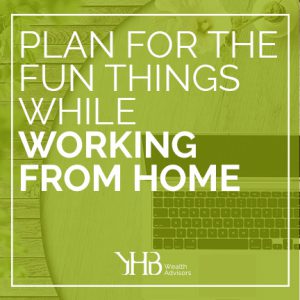
 I now find myself regularly seated at a beautiful table, made of reclaimed Vermont barn wood, in the cool area of my basement. Certainly, I would prefer different circumstances under which I find myself here and it without a doubt has led me to moments of uncertainty as I consider when this will end. However, I must say, there is quite the silver lining to consider. Personally, I have a significant silver lining who came on April 14 at 11:15pm (thankfully prior to that fateful midnight transition) and we have named him Judah Michael Trimble.
I now find myself regularly seated at a beautiful table, made of reclaimed Vermont barn wood, in the cool area of my basement. Certainly, I would prefer different circumstances under which I find myself here and it without a doubt has led me to moments of uncertainty as I consider when this will end. However, I must say, there is quite the silver lining to consider. Personally, I have a significant silver lining who came on April 14 at 11:15pm (thankfully prior to that fateful midnight transition) and we have named him Judah Michael Trimble.
Was it quite the experience to be “locked” in a hospital room for 2 days? Absolutely. Yet our hospital staff were INCREDIBLE and we must say that the new wing of INOVA Loudoun is phenomenal. Now I realize you didn’t click on this article to hear me wax poetic over my personal life, so let’s get down to how you can improve your financial and personal well-being by answering the following: What must you consider as you shelter-in-place, remain safe-in-place, and possibly make the decision to transition to work from home (WFH) on a permanent basis?
Stay Organized
Presently, I have a mass of clutter including papers, pens, notepads, magazines, chords, textbooks, and notebooks on our table. Since my wife is proudly a very organized woman, I am generously providing her a considerable amount of stress as I WFH. As someone who enjoys the life we share together, I highly recommend organization first and foremost.
On a more serious note, organization can really benefit both your personal life and personal finances. Now is an excellent time to get your budget in order. Identify where you’re able to spend less and save more and evaluate how much you actually spend on items or activities you don’t always track. We are simply wanting to make sure our spending priorities are in line with our financial goals.
When we talk about building successful financial plans, we really only have 3 ways to increase the likelihood of success in our plans: spend less, save more, and/or retire later. If you’re curious about a general target for a budget, see how yours compares to the following guide: 50% necessary expenses (home, groceries, utilities, etc.), 30% discretionary expenses, 20% savings. Having a budget is foundational to financial plan success and feeds into all other areas of our personal finances.
Plan for the Fun Things
Now that you have successfully built and analyzed your budget, it’s time to plan that next vacation. Who said financial planning wasn’t fun?! Seriously, after surviving this global pandemic you’ve earned it! According to Access Development, during 2019, the average American spent on average $1,978 on a summer vacation and $6,080 on international travel.
I can say from personal experience that it is incredibly easy to go into debt from going on vacation. However, there really isn’t any reason we should need to go into debt in order to relax and recover from being locked in our homes for 2 months (or more). Taking the time to plan your vacation and researching multiple options in terms of cost provides a great perspective of what your options truly are.
Recently Airbnb had mapped out the top 10 most wish-listed homes across the world. Were you aware that you could reserve a private residence in Bali, complete with a private swimming pool, and located only 3 minutes from the beach? What about a 4-bedroom beach house in Brazil? A private, self-sustaining (solar powered), off-grid retreat in California that is complete with Wi-Fi for your “remote work”? Would you believe that you could reserve any of these places for less than $100/night? Granted these prices are reflective of market demand during the pandemic, but we have had (and still have) quite the amount of time on our hands to research options for an upcoming getaway. Create your budget first, then decide on your destination. Remember, if you’re going to use a credit card to pay for your retreat into Zen, make sure we have the cash to pay it off before you accrue interest.
Working from Home
Lastly, you may be considering working from home on a permanent basis. This could provide the opportunity for frequent “working remote” while on vacation opportunities. This may also provide the opportunity to write-off some expenses on our tax return. It is a great time to engage our incredibly knowledgeable CPA’s here at YHB to identify how this may affect your tax circumstance.
You may save on vehicle expenses, but you could be spending more on phone, internet, and utilities as a result. Are you able to write-off any of these? This is an excellent question for our tax advisors since there are unique circumstances under which you may and may not be able to write off any of these expenses in your tax filing. Knowing the impact prior to making the decision keeps us from frustration after the fact. With our budgets, our vacations, or our decisions to move the office home we want to know before we go!


JT Trimble, Candidate for CFP® certification, joined YHB in August of 2018 and serves as a Client Account Manager. He is a regular contributor to Let’s Talk Investing and speaker at numerous events throughout the region. JT is a member of the Loudoun County Chamber of Commerce and the Financial Planning Association.
